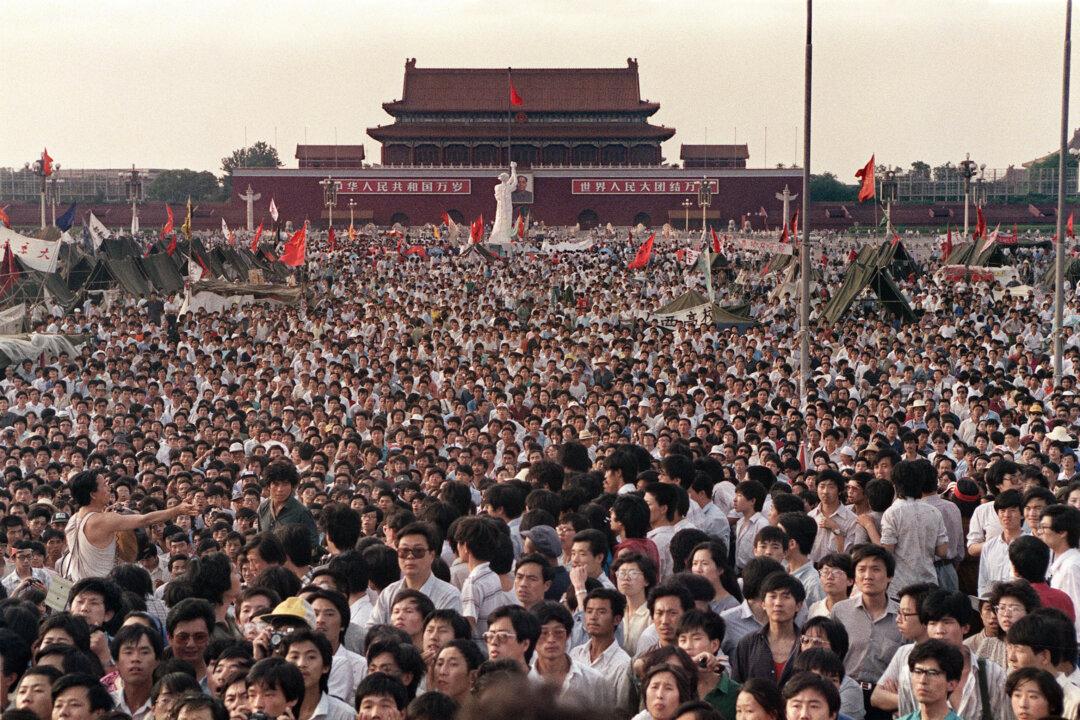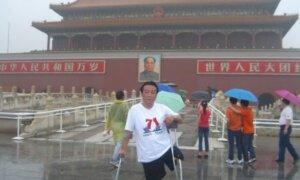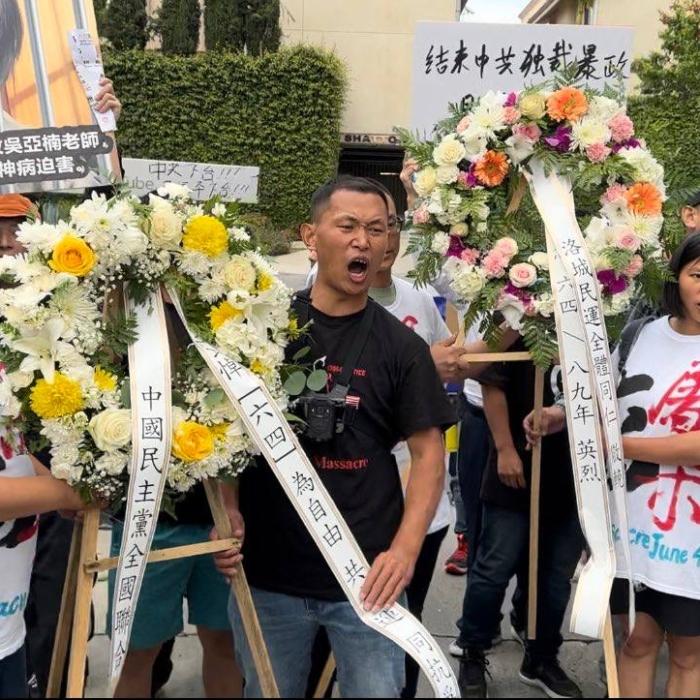This year marks the 35th anniversary of the Chinese students’ democratic movement and the Tiananmen Square massacre in 1989. The Chinese Communist Party (CCP) has censored commemorative articles and restricted the freedom of activists across the country.
Meanwhile, a high-level international symposium commemorating the movement has been held in New York to discuss China’s future.
April 15 marked the 35th anniversary of the death of former CCP leader Hu Yaobang, which was the trigger for the June Fourth student movement and the massacre.
Hu tried to change the CCP’s one-party rule political system in China when he was the CCP leader from 1982 to 1987 and was suppressed by Deng Xiaoping, who launched the opening up of the Chinese economy but refused to reform politically and was still in control of the regime behind the curtain. College students in Beijing and other major cities started months-long mass protests in 1989 to commemorate Hu’s death and to demand democracy, until they were violently oppressed by the CCP’s military on June 4, 1989.
Gao Yu, a senior journalist in Beijing, said in a social media post, “Today (April 15) is the 35th anniversary of the death of Hu Yaobang. Many citizens in Beijing and across the country have been controlled (by security guards and police) from last night to tonight, their freedoms are restricted 24 hours a day. What behavior is this?”
An 800-word-long commemorative article had been circulated on Chinese social media in recent days until it was censored by the communist regime. It’s allegedly written by a retired senior CCP official named Yan Huai, who’s the former deputy director of the Youth Cadres Bureau of the Organization Department of the CCP and the son of a high-ranking CCP official.
The article, originally posted on Mr. Yan’s Weibo account, praised Hu Yaobang for redressing unjust, false, and wrongful cases, and for implementing policies that emancipated 100 million Chinese citizens who had been persecuted for political reasons. He undertook these actions as the minister of the organization committee of the CCP after the Cultural Revolution ended in 1976.
The article also described the 100 million people persecuted by the CCP: “The tens of millions of landlords and rich peasants who were not killed by public executions or lynchings during the CCP’s violent land reform, but were labeled as enemies, had been under control since 1949 [when the CCP took over mainland China]. They did the hardest work and got the lowest pay.
“They were reprimanded and beaten and suffered even more during the CCP’s political movements. During the Cultural Revolution, they were arbitrarily massacred even in the capital city. Their descendants were repeatedly discriminated against in their education, employment, and marriage.
“In an era where family’s social class was important in everything, people were implicated and affected for three generations and through three family lines (paternal line, father-in-law’s line, and maternal line). There were nearly 100 million Chinese being persecuted politically because they were related to the land owners and the wealthy families.”
He Feng (pseudonym), a mainland Chinese dissident, told The Epoch Times, “Hu Yaobang and Zhao Ziyang (who was the CCP leader in 1989) participated [in] the evil that the CCP had done, such as the land reform, the Socialist education movement, etc. However, they did some good things in their later years which other CCP members couldn’t do. Therefore, the CCP authorities have always tabooed the mentioning of Hu and Zhao.”
Political Reform Attempts Cut Short
Feng Chongyi, associate professor at the University of Technology, in Sydney, told The Epoch Times, “Hu Yaobang was a rare leader who had conscience. He initiated political reform and opening up. Many people like us are the beneficiaries. It is worth commemorating him. Hu and Zhao’s alliances within the system, such as Li Rui, Zhu Houze, Bao Tong had taken their ideas even further, who suggested abandoning Marxism-Leninism and embracing the liberal ideological system, and then abandoning one-party dictatorship and embracing constitutional democracy, which was already a leap.”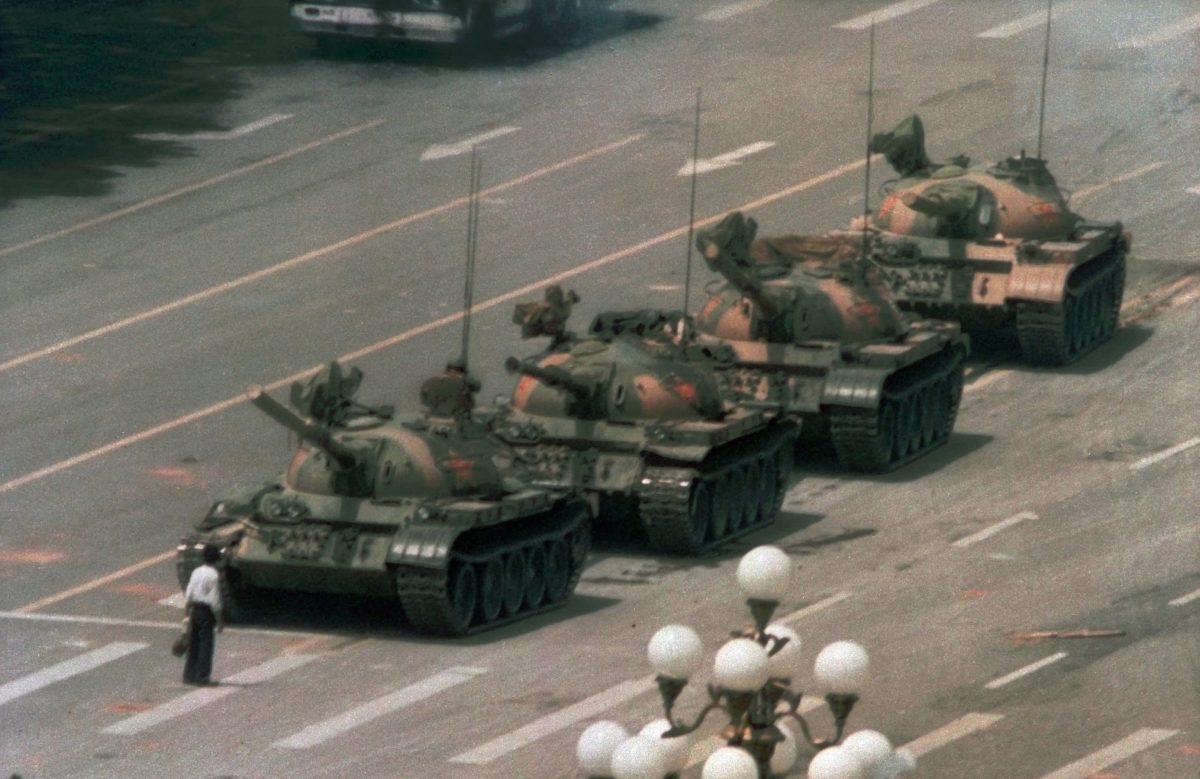
Mr. Feng said, “The political reform initiated by Hu Yaobang and Zhao Ziyang was shut down in 1989. Now it [the commemoration of Hu] also reflects criticism and dissatisfaction with the CCP’s current leader Xi Jinping, as Xi is now going back [to Mao’s hardcore communism].”
Mr. Feng also spoke at the international symposium “Commemorating the 35th Anniversary of Hu, Zhao and the 1989 Democracy Movement” held in New York from April 14 to April 15. The event was co-organized by Hu Yaobang and Zhao Ziyang Foundation, the New York Thinkers Club, the Academic Department of the National Committee of the China Democratic Party, the June 4th Memorial Museum, and the Bouden House.
More than 20 overseas Chinese scholars in politics, economics, and other fields participated and shared their research experiences. A few scholars from China were also invited.
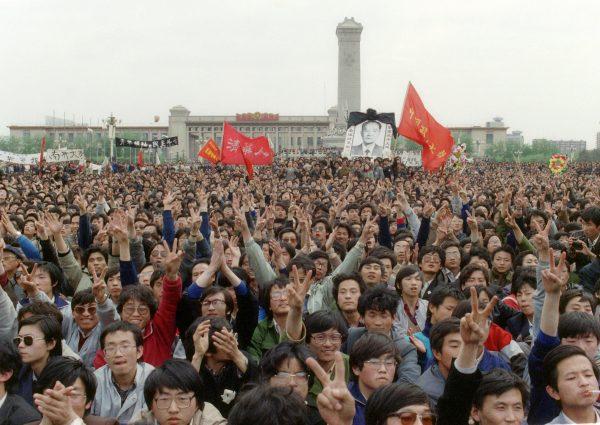
Path to Revolution
Mr. Feng said that the participants were discussing what people should do today for China, to take a peaceful path or violent revolution. What path, what method, and what are the prospects for a revolution?“The consensus is that the future transformation should be the result of the combined efforts of various forces.”
He expects that many people within the CCP will defect. “It is very likely that the order will be that the people’s uprising will come first, and then the authorities will send the army to suppress it, but the military and police will fail, or they will defect, triggering a mutiny. In this case, it will create an opportunity for politicians to stage a coup to change the political situation and start a new chapter,” he said.
“It would be just like the Revolution of 1911 which ended the imperial system [and started a republic], and now it is about ending the one-party dictatorship and communist tyranny.”
